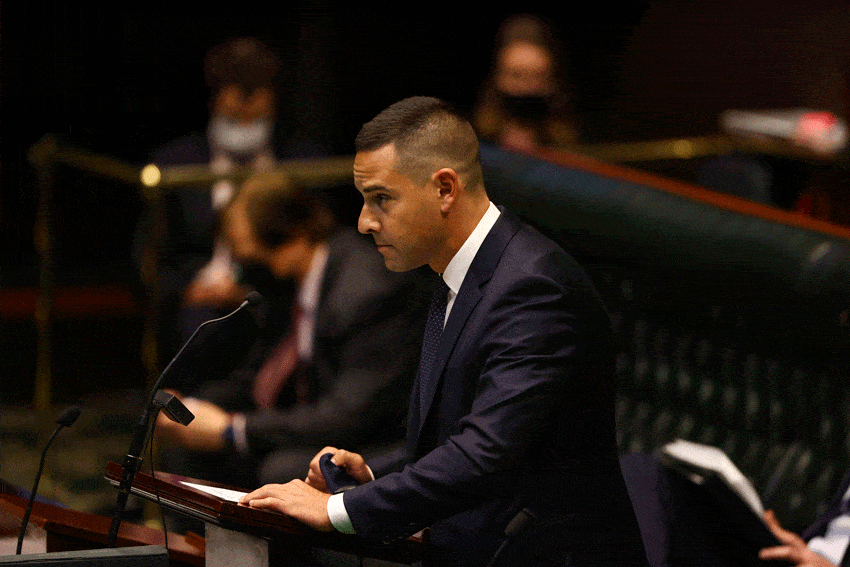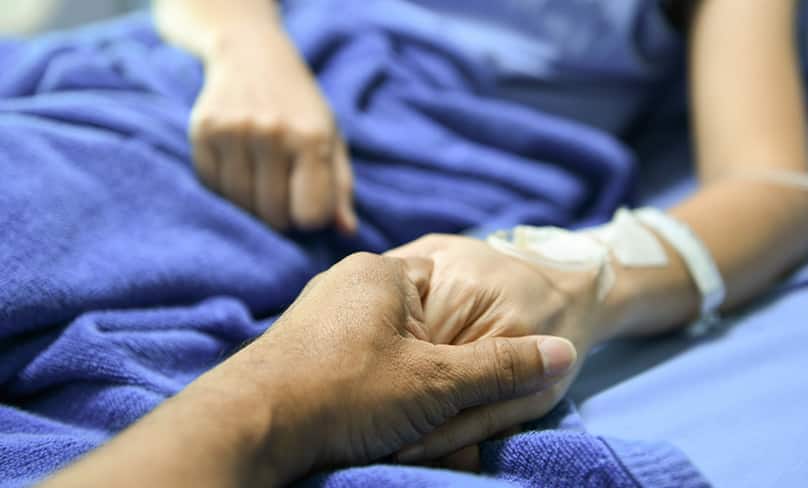
The NSW Legislative Council inquiry into Independent MLA Alex Greenwich’s proposed euthanasia laws has “elected not to take a position on the bill”, after a 4-4 split on the Standing Committee on Law and Justice was resolved by Chair Wes Fang MLC’s casting vote.
“It is clear that this is an issue with strong and passionate opinions, which are felt deeply by both sides of the debate,” Fang wrote in the report’s foreword.
“Further, it is also clear there is no consensus amongst stakeholders as to the merits of the bill. Indeed, there was no consensus amongst the committee members themselves.”
The sole recommendation from the inquiry was an in-effect endorsement of the bill, however, advising that the “Legislative Council proceed to consider the Voluntary Assisted Dying Bill 2021”.
Lou Amato, Scott Farlow and Taylor Martin, from the Liberal Party, and Labor’s Greg Donnelly all opposed the bill, while the Greens’ Cate Faehrmann, One Nation’s Rod Roberts, Labor’s Anthony D’Adam and Committee Chair Wes Fang, of the Nationals, were in support of it proceeding to a vote.
“The bill is not fit for the purpose it is intended for; therefore it should not proceed any further in the Legislative Council.”
The bill’s opponents proposed an alternate recommendation, which was defeated by the casting vote of the Chair.
“In light of the evidence presented to the inquiry, the bill is not and cannot be made safe for the citizens of New South Wales, especially the most vulnerable,” the dissenting recommendation read.
“The bill is not fit for the purpose it is intended for; therefore it should not proceed any further in the Legislative Council.”
Donnelly’s dissenting report said the “obviously euphemistic terminology” of “Voluntary Assisted Dying” was “carefully crafted and highly polished with a single purpose in mind; make what are the harsh realities of the bill palatable”.
He nevertheless acknowledged that “people on both sides of the assisted suicide and euthanasia debate are well intentioned and believe that they are fighting for the greater good, it is just that they do not agree on what this is”.

The other three dissenting reports stressed further concerns with the accuracy of predicting the prognosis of people with terminal illnesses, the pressures put on vulnerable people including the elderly and women, and warned once again that NSW will likely follow international trends by removing safeguards over time.
Despite the non-committal recommendation, committee minutes included in the bill show how the dissenting MLCs succeeded in passing a substantial number of amendments to produce a more balanced report.
Even pro-euthanasia Greens MLC Cate Faehrmann noted that the minutes “changed the balance and tone of the final report”.
The inquiry received around 39,000 responses to a questionnaire on the bill and over 3000 submissions, of which 107 were published.
Almost 68% of respondents to the questionnaire were in favour of the bill; nevertheless the committee acknowledged the “questionnaire was not intended as a statistically valid, random survey … respondents are unlikely to be a representative sample of the NSW population”.
“Rather, they told the committee that it reflects a fundamental shift and disruption to the social fabric, which impacts religious and non-religious people alike.”
Archbishop Anthony Fisher OP appeared as a witness during the inquiry’s public hearings in December 2021 alongside the Grand Mufti of Australia.
“The proposition that human life is invaluable has been part of the common morality of the great civilisations, the best secular philosophies, the common law tradition, international human rights documents, the pre-Christian Hippocratic oath, the codes of the World Medical Association and the Australian Medical Association, and the world’s great religions,” Archbishop Fisher said in his evidence.
The report noted that the Church’s opposition was not solely grounded in the view that suicide is “interfering with God’s will”.
“Rather, they told the committee that it reflects a fundamental shift and disruption to the social fabric, which impacts religious and non-religious people alike,” the report stated.
The bill was introduced into the Legislative Council by Labor MLC Adam Searle immediately after the report was tabled.
